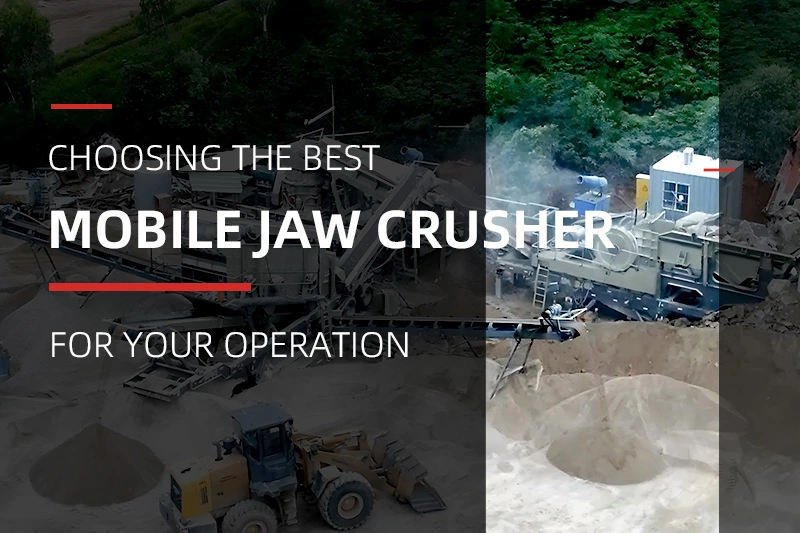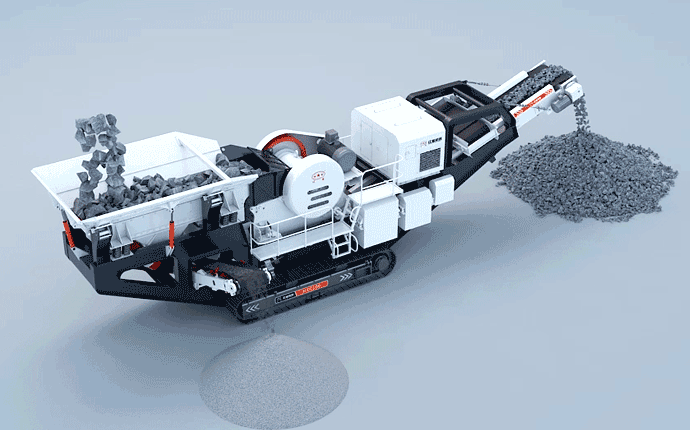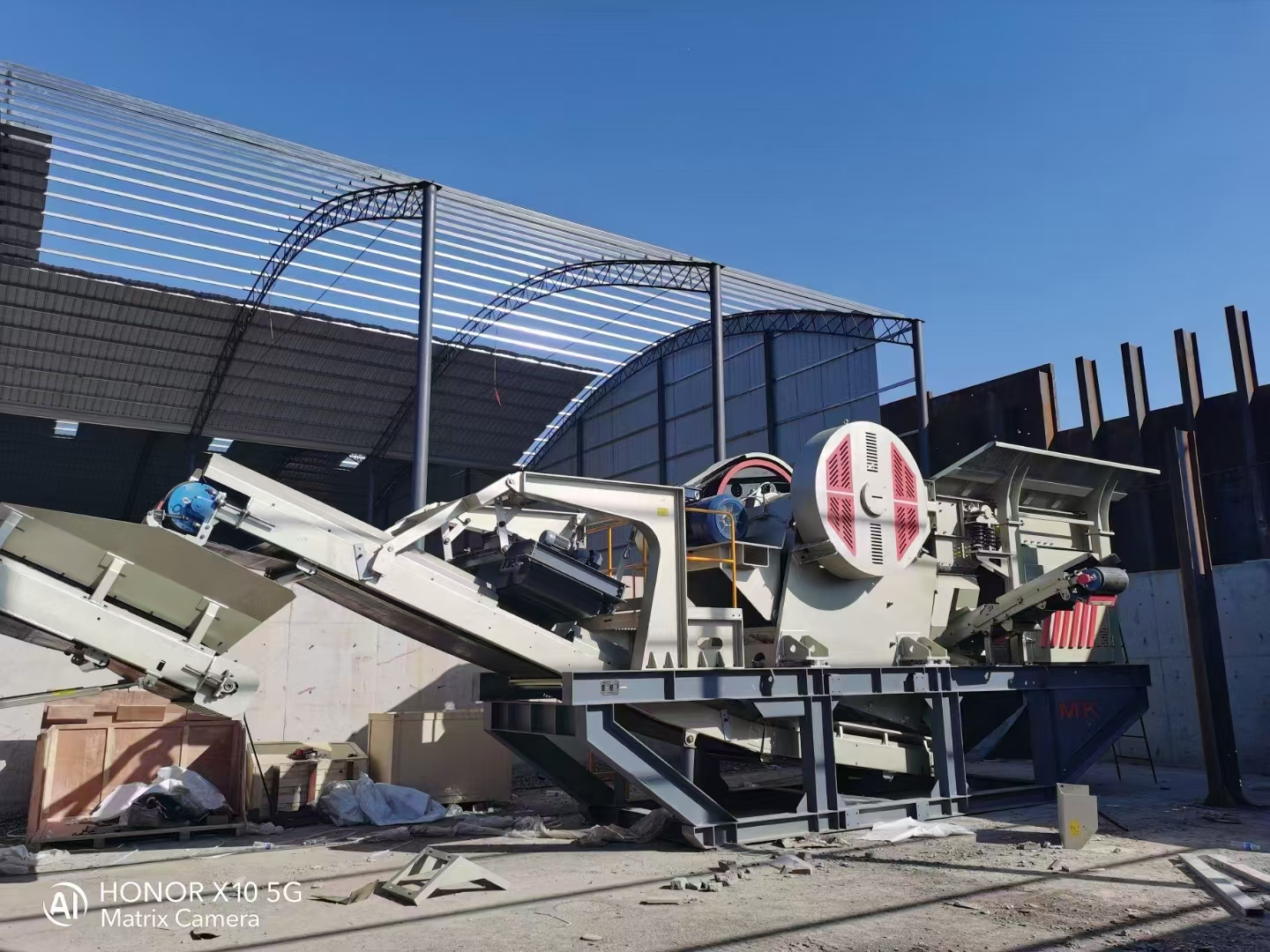
Selecting the right mobile jaw crusher for your operation is crucial to ensure long-term productivity, cost-effectiveness, and operational efficiency. Whether you are in the mining, construction, or recycling industries, having a solid understanding of how to choose the right equipment can make all the difference. This article explores the key considerations you need to keep in mind when selecting a mobile jaw crusher, from understanding your crushing requirements to evaluating power options, durability, and overall cost.
Before diving into the specifics of how to select the best mobile jaw crusher for your needs, it’s essential to understand what makes this type of crusher unique. A mobile jaw crusher is a portable crushing machine that is used to break down large materials, such as rocks and concrete, into smaller, manageable pieces. The mobility of these crushers makes them ideal for on-site operations, where transportation and flexibility are crucial. They are commonly used in construction sites, quarries, mining, and demolition projects.
Key Features of Mobile Jaw Crushers:
When selecting a mobile jaw crusher for your operation, there are several critical factors to consider. Understanding your project’s specific needs will help guide your decision and ensure that you choose the right crusher for the job.
Crushing Requirements: Know Your Material

One of the first things you need to evaluate when selecting a mobile jaw crusher is the material you’ll be processing. Different materials—such as limestone, granite, or recycled concrete—require different crushing capabilities. The hardness and size of the material directly affect the performance of the crusher.
For example, softer materials can be crushed with a lower-powered crusher, while harder materials may require a more powerful model. Additionally, some crushers are equipped with adjustable jaw settings that allow operators to modify the output size based on the material they are processing.
Size, Capacity, and Throughput
The size of the mobile jaw crusher is a significant factor in choosing the right model for your operation. The size of the feed opening, the crusher’s physical dimensions, and its capacity will all determine whether it meets your needs.
Feed Size: The size of the feed material must match the feed opening of the crusher. A larger feed size allows you to process larger pieces of material.
Output Size: The output size of the crusher, which is the size of the material after crushing, must be suitable for your project. Make sure the mobile jaw crusher you choose can produce the desired size of crushed material in one pass.
Mobility and Transportability
The mobility of a mobile jaw crusher is one of its most significant advantages. If your operation involves frequent relocation or if you are working at various sites, the portability of the crusher will save you time and money.
When considering the mobility of a crusher, check for the following features:
Diesel-Powered Mobile Jaw Crushers
Diesel-powered mobile jaw crushers are commonly used in remote locations or areas without access to a stable power supply. These crushers are typically more mobile and can be used in a variety of locations without requiring an external power grid. However, they tend to have higher fuel costs and emissions compared to electric models.
Electric-Powered Mobile Jaw Crushers
Electric-powered mobile jaw crushers are ideal for operations where access to an electricity supply is available. They are typically more fuel-efficient and environmentally friendly than their diesel counterparts. Electric crushers also tend to be quieter, which is beneficial in noise-sensitive environments. However, they may be less mobile than diesel-powered models due to their reliance on power sources.
Durability and Build Quality

Durability is a key consideration when selecting a mobile jaw crusher. The harsh conditions of mining or construction sites demand equipment that can withstand heavy use and continue to perform over time. Crushers made from high-quality steel and durable materials will be more resistant to wear and tear.
Reinforced Frame: A high-quality mobile jaw crusher should have a reinforced frame that can handle the stresses of crushing large materials.
Wear-Resistant Components: Look for crushers that feature wear-resistant components, such as jaw plates and liners, to extend the life of the equipment.
Automation and Technological Features
Advances in technology have significantly improved the performance and efficiency of mobile jaw crushers. Many modern models come equipped with automated features that help operators optimize the crushing process.
Remote Monitoring and Control: Some mobile jaw crushers are equipped with remote monitoring systems that allow operators to monitor and control the machine from a distance. This reduces the need for constant on-site supervision and helps increase productivity.
Predictive Maintenance: Many new models include diagnostic tools that monitor the health of the equipment in real time. These tools can predict when maintenance is needed, preventing unexpected breakdowns and reducing downtime.
Maintenance is essential to keep your mobile jaw crusher running smoothly and efficiently. Regular maintenance helps extend the life of the machine and ensures that it operates at peak performance. Some maintenance tasks to keep in mind include:
Cost Considerations: Initial Investment vs. Long-Term Savings
The initial cost of a mobile jaw crusher is a significant factor in the decision-making process. However, it's equally important to consider long-term costs, such as fuel, maintenance, and parts replacement. A more expensive model might have higher upfront costs but offer greater efficiency, lower fuel consumption, and reduced maintenance costs over its lifespan.
When evaluating the cost of a mobile jaw crusher, make sure to account for:
Choosing the right mobile jaw crusher for your operation is essential for maximizing efficiency, reducing operational costs, and ensuring that your team can meet the demands of your project. By carefully considering factors such as material requirements, crusher size, power options, durability, and maintenance needs, you can make an informed decision that will benefit your business for years to come.
Remember, the best mobile jaw crusher isn’t always the most expensive model—it’s the one that meets your specific needs in terms of performance, cost-effectiveness, and long-term reliability. Whether you're dealing with hard rock, concrete, or recyclable materials, the right crusher can help you get the job done efficiently, safely, and within budget.